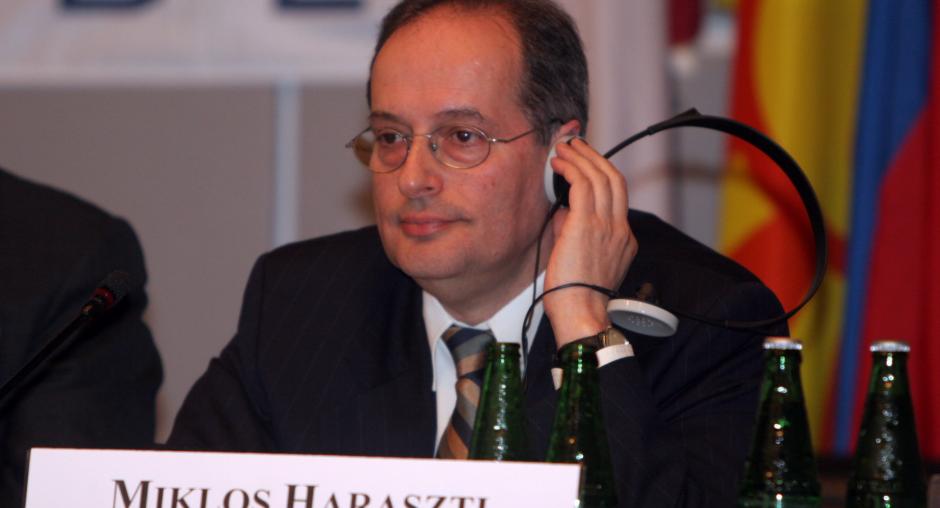OSCE media freedom representative asks prosecutors in Russia and Belarus to drop 'cartoon cases'

VIENNA, 24 February 2006 - The OSCE Representative on Freedom of the Media, Miklos Haraszti, appealed to prosecutors in Russia and Belarus to drop criminal charges against newspapers that are under investigation for "incitement of hatred," after illustrating articles about the Mohamed cartoon controversy with actual cartoons.
"It is civil society that must deal with eventual editorial misjudgement in publishing cartoons that are offensive to Muslims," he said today at a special debate on freedom of expression and respect for religious beliefs at the winter session of the OSCE Parliamentary Assembly. "Authorities should not use criminal charges against editors who are trying to inform their readers about issues of public interest."
In Russia last week, both the Vologda-based Nash Region and the Volgograd-based Gorodskie Vesti were brought to regional Prosecutor's offices under an incitement provision, article 282 of the Russian Criminal Code.
In Belarus this week, the Committee for State Security (KGB) initiated a criminal case against the Minsk-based independent weekly Z'hoda under article 130 of the Belarusian Criminal Code, "incitement of racial, ethnic or religious hostility." The paper's premises were searched and their computers confiscated, effectively preventing the paper from publishing.
"These cases are different in nature, but they have one feature in common," said Mr Haraszti. "In all three cases, State authorities have overtaken civil society's role in helping to raise the standards of editorial professionalism and global oversight. They will not be successful as States are unfit for that job. But they will certainly succeed in restricting the free flow of information in society."
"I hope that the prosecutors will soon drop these cases, because such procedures misuse hate speech laws," added the OSCE Representative. "Editorial misjudgment of the global situation is not equal to any intentional incitement to hatred. This is exactly how violent extremists would like to represent this issue."
